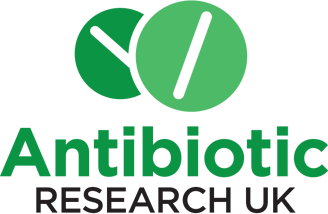ANTIBIOTIC RESEARCH UK (ANTRUK) SCIENCE COMMITTEE RESEARCH PROGRESS REPORT
The focus of ANTRUK is finding ways to save our current antibiotics to fill the gap before new ones become available. Discovery of new antibiotics is a lengthy and risky enterprise with no guarantee of success. So, we need to help safeguard medicine over the coming years by breaking the resistance that bacteria are building up to our current antibiotics. We call this the ‘Antibiotic Resistance Breaker’ (ARB) approach. We aim to use existing drugs in combination with an antibiotic allow it to become effective again.
ANTRUK has now completed Stage 1 of its first research project. The objective of which was to find combinations of two or more antibiotics or non-antibiotics that are effective against the most resistant infectious bacteria. We have tested combinations designed to salvage some of our most important antibiotics. We first considered the penicillin derivatives meropenem and aztreonam. We’ve also looked at colistin (often known as the antibiotic of ‘last resort’) for serious infections.
Treatment combinations
In the first phase of our research we have identified several combinations of two antibiotics that meet our goal of breaking resistance to two or more of the most infectious bacteria. We now need to confirm these findings in a broader range of bacteria that are currently causing problems in our hospitals. Our team also need to test how likely it is that bacteria will become resistant to these combinations. We also need to start thinking about adding a third antibiotic to strengthen the power of our new therapies. The team envisage this effort will take the remainder of this year.
We believe that it may take a combination of three antibiotics to provide effective therapies. The combination would make it hard for bacteria to overcome. Use of three drugs is common in treating other infectious diseases. The HIV virus (AIDS), cancer, and Hepatitis C virus use three drugs for treatments. The treatment of the tuberculosis mycobacterium requires up to four antibiotics. So, we are focused on finding triple combinations for bacterial diseases too. At the moment there are none in common use: antibiotics are mostly being used singly though, occasionally two work together. This may be one reason why resistance is becoming such a problem! Use of a combination of three antibiotics is not standard practice but it may need to become so to beat the antibiotic resistance problem and ANTRUK intends to pioneer this approach of using multiple antibiotics to defeat resistance.
Collaborative working
In addition, we are entering research collaborations with two of the UK’s leading Universities, Cambridge and Warwick, to strengthen our capabilities, including access to computer modelling to predict the best antibiotic combinations at Cambridge, and world-class antibacterial testing facilities at Warwick. The latter collaboration is also with the Medicines Discovery Catapult. The number of potential combinations of three antibiotics is very large and the number of bacteria we have to tackle is also large, so we need computer predictions to help identify which combinations might work. This effort will likely start to pay back during 2018.
Potential new treatments
To show you the range of our research, we have a potential non-antibiotic treatment for diarrhoeal diseases, including traveller’s diarrhoea. It could also be a therapy for some more serious bacterial infections that cause loss of life. In the best tradition of medical discovery, several volunteers have already tested it on themselves when ill while travelling! It proved very effective in all cases. We are aiming to progress this treatment into rigorous clinical trials. Hopefully this will be a success for ANTRUK both in reduced human suffering and deaths and also in saving our antibiotics as the three constituents involved are not antibiotics, they are cheap, they are safe, and they are readily available to even the poorest people in the world.
Dr David Brown
(Chairman of Science Committee)
These first stage trials were a great success, but we still need your help to make the vital second stage trials happen. Please help us continue to take the fight to antimicrobial resistance by donating now.

